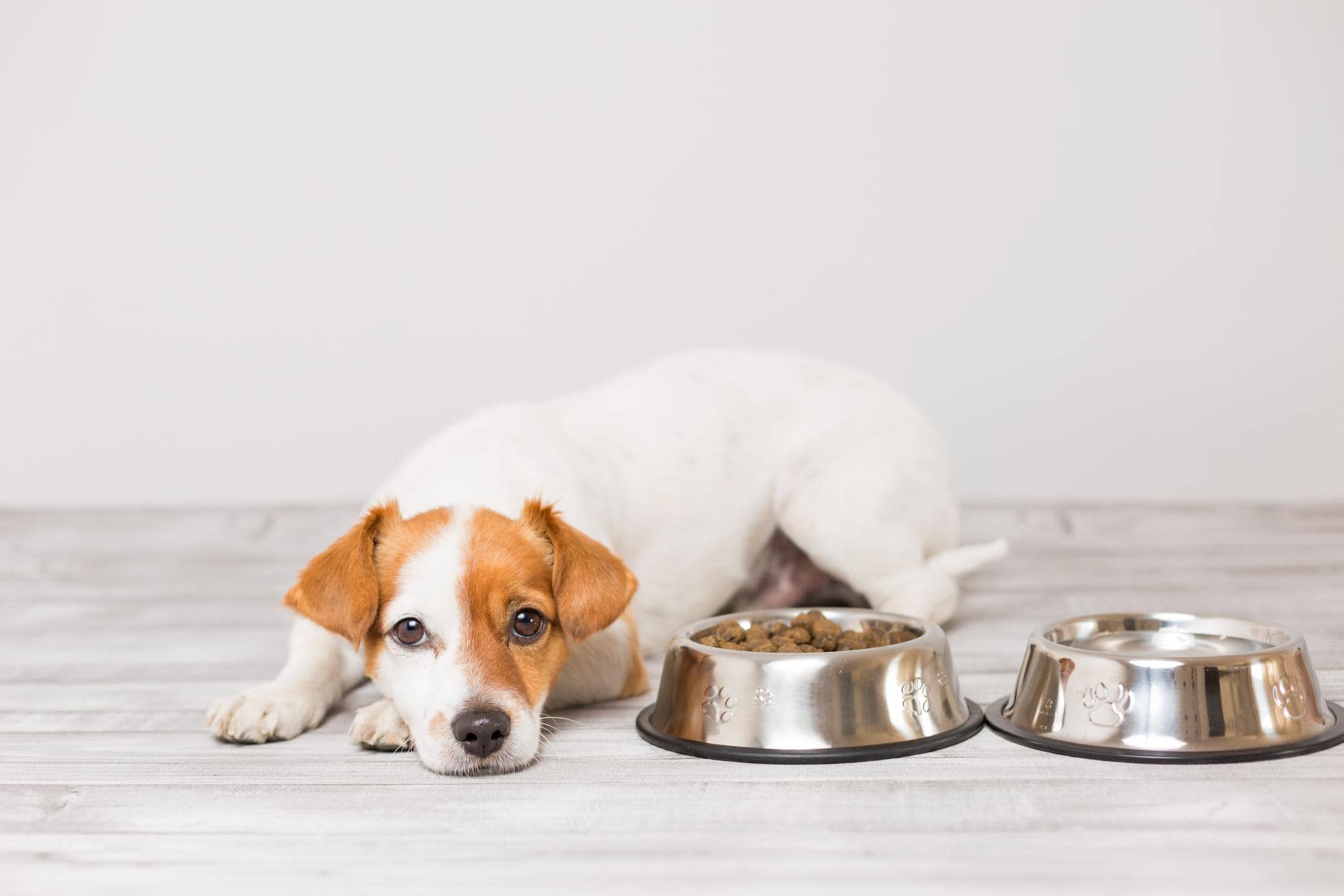My Dog Is Not Eating: Causes and What To Do

If there’s one thing pet parents can count on, it’s their dog’s appetite for virtually any bowl of food placed in front of them. So if your pooch is suddenly boycotting his kibble, it’s natural to be concerned. While not all causes of dog appetite loss are serious, it’s important to find the answer to “why won’t my dog eat?” as soon as possible.
In this blog, our team at Cherry Creek Veterinary Hospital looks at common causes of dog appetite loss and offers tips on what to do if your dog won’t eat
Medical Causes of Dog Appetite Loss
A dog not eating could be a sign he doesn’t feel well. Here are some common illnesses that cause appetite loss in dogs:
Gastrointestinal problems: Conditions that impact digestion are among the most common causes of dog appetite loss. An upset tummy, constipation, inflammatory bowel disease, or an obstruction caused by the ingestion of a foreign object are possible causes of a dog not eating.
Dental disease: Broken or loose teeth or gum infection can make eating painful.
Illnesses: Sometimes, serious medical conditions like kidney or liver failure, pancreatitis, cancer, or heartworms can be the reason why a dog is not eating.
Joint discomfort: Hip dysplasia, an old or new injury, or the pain and stiffness of arthritis can make it uncomfortable for dogs to stand over their food bowls.
Certain medications: A new medication could be the reason behind your dog’s loss of appetite.
Cognitive decline: More common in senior pets, cognitive decline can make dogs lose interest in eating or drinking.
Environmental Causes of Dog Appetite Loss
Dogs can experience stress or anxiety when something in their environment changes, and this can lead to loss of appetite.
Do any of these circumstances apply to your pooch?
- You adopted a new pet
- Your dog’s diet changed
- You moved to a new home
- You’ve been doing construction in the home
- You have houseguests
- You have a new baby
- You rearranged your furniture
- You moved the food and water dishes
What To Do if Your Dog Won’t Eat
Is your dog still drinking plenty of water and behaving normally? Then offer extra TLC and make sure his appetite returns in a day or two. A persistent loss of appetite, particularly if accompanied by other symptoms like vomiting, diarrhea, or lethargy, warrants a veterinary appointment. If your dog has a diagnosed condition like diabetes and won’t eat, don’t wait. Contact your veterinarian immediately.
Dog Appetite Recovery Tips
Try these tips and tricks to encourage your dog to eat:
- Warm up his food
- Top his food with a low-sodium broth
- Experiment with different textures and flavors
- Hand feed
Help for Dogs Not Eating
We understand that a dog not eating can be concerning. We’re here to help. Please contact us at (916) 349-2755 for more recommendations on what to do if your dog won’t eat.
